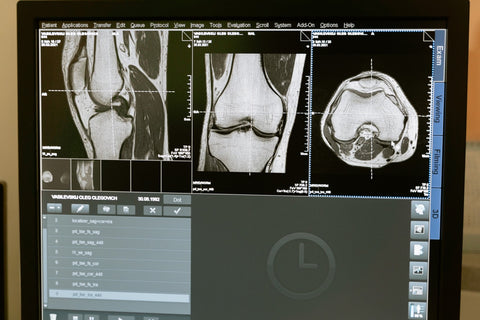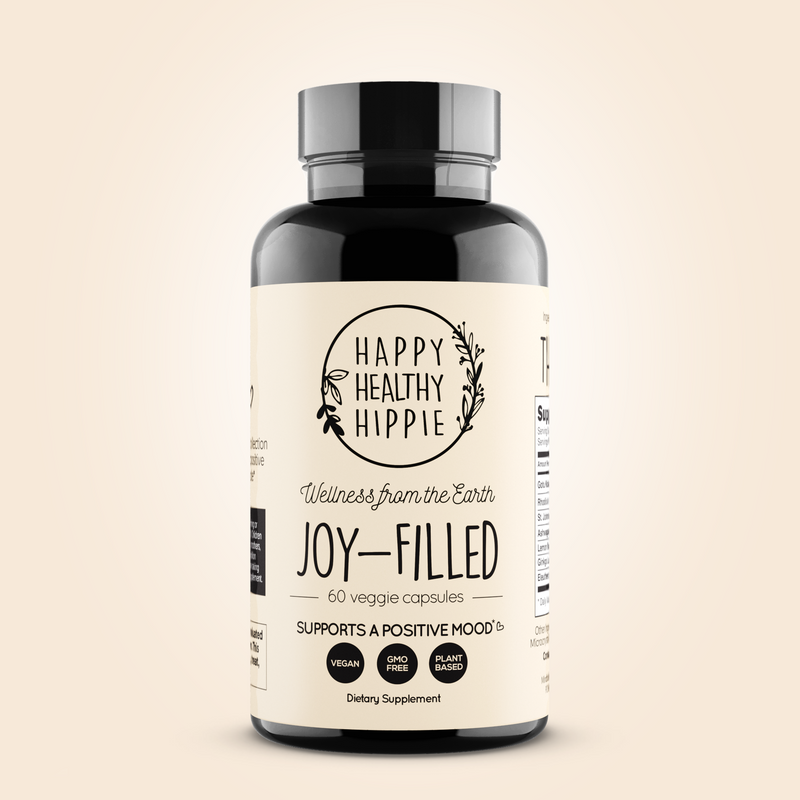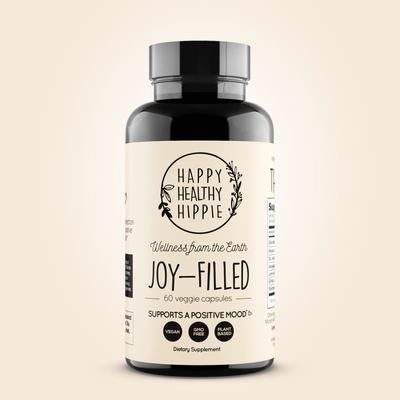
- bone health
- Chanterelle Mushrooms
- Health & Wellness
- improve mood
- mood
- orange juice
- spinach
- supplement
- Supplements
Salmon, tuna, halibut, beef liver — any list of vitamin D sources is heavily dominated by poultry, eggs, cheese, and fish.
That’s why vegans and vegetarians may sometimes feel like it’s hard to get enough vitamin D if they’re not eating certain foods.
If you fall under this category, it’s time to examine what you’re eating. Other factors, like getting enough sunshine or the pigment of your skin, also contribute to adequate vitamin D levels. But you can’t control changing weather nor the color of your skin.
Instead, plan to choose vitamin D-rich foods as a reliable way to maintain optimal vitamin D levels, especially for vegans. In this article, you’ll learn about the signs of a vitamin D deficiency and 8+ vegan food options with vitamin D for your health.
Let’s dive right in!
Why Do You Need Vitamin D?
Vitamin D — an essential nutrient that does your health a world of good. Scientifically known as “calciferol,” vitamin D has a range of functions in the human body.
The fact is that, without vitamin D, you wouldn’t be able to fight off illnesses, maintain strong teeth and bones, or even connect your thoughts.
It’s that essential.
But what is vitamin D?
Great question: what we know so far is that vitamin D is a fat-soluble nutrient, which means that it needs healthy fats and oils to be absorbed into your body. The good news is that you can get quite a bit of your daily vitamin D needs just from heading out into the sunshine.

However, depending on this one source for vitamin D won’t help -- instead, you’ll need vitamin D-rich foods. And that’s true whether you’re a vegan or not.
Another essential fact about vitamin D’s profile is that your body can’t absorb calcium without it.
Vitamin D and calcium are intricately connected. Since calcium is important for maintaining bone density, you can see why vitamin D would also play a role in protecting you from issues like osteoporosis. This disease thins and weakens bones, making them fragile and prone to fractures.
Now, there are two forms of vitamin D available in foods and dietary supplements: D2, known as ergocalciferol, and D3, known as cholecalciferol. They both play the same role in the body. However, in terms of structure, they’re slightly different.
There’s a reason for this structural difference: D3 is vitamin D that comes from animal sources, while D2 comes from plant sources. In other words, D2 and D3 are two types of vitamin D.
So, if you’re a vegan, food with vitamin D will likely be D2, even if you’re choosing fortified foods (which we’ll cover below in a minute).
The “sunshine vitamin,” as it's called, contributes to a range of essential physical processes. Let’s explore just five of these functions that you need to maintain for optimal health.
5 Reasons Your Body Needs Vitamin D to Thrive
Vitamin D is a modest nutrient, barely letting on to the fact that it plays significant and multiple roles in your overall health. If all is going well with your body, you won’t even notice the benefits that vitamin D brings.
Low levels of vitamin D, however, cause a range of symptoms. We’ll cover these later through this article, so make sure to read on and discover what to look for if you suspect you have a vitamin D deficiency.
For now, let’s list all the ways in which vitamin D positively impacts your body.
1. Vitamin D Helps Maintain Bone Health
When it comes to bone health, think about vitamin D like a facilitator.
Proper vitamin D production is crucial for the body to be able to absorb calcium. That means, no matter how many sources of calcium you take in, be it beans or spinach, your body won’t be able to absorb it if you lack vitamin D.

But your body still needs calcium for other functions, so it draws vitamin D from reserve stores in your bones. Doing so weakens your bones and impacts the formation of new ones.
2. Cell Growth Relies On Vitamin D
Vitamin D is so essential for the body to function that many tissues have receptors that respond to and send out a signal which then helps vitamin D catalyze necessary reactions.
The genes that encode the body’s proteins also need vitamin D for proliferating more cellular growth, differentiation, and even cell death. The latter function means that cells that are no longer useful won’t interfere with or harm normal body functions and other healthy cells.

Vitamin D’s role in cell growth and proliferation also means that it is linked with how your body experiences inflammation. Part of this nutrient’s power is that it boosts the immune response, primarily by regulating inflammatory cytokines.
These are a type of “signaling” molecule that tells the cell to trigger inflammatory responses. This response mechanism is the same as when your body is going through a fever. It increases your internal temperature to protect against foreign pathogens.
A cell’s inflammatory response behaves similarly. So, it’s up to vitamin D to inhibit the proliferation of proinflammatory cells that could be hijacking your body’s immune response..
This also means that taking a vegan vitamin D supplement can help your body naturally bolster its immune response in the case of infections.
Pretty powerful stuff, right?
3. Vitamin D is An Energy Booster
The key to vitamin D as an energy booster is its role in mitochondrial activity. The mitochondria in your body are responsible for powering every single cell in your body.

That’s also why cells have a vitamin D receptor — in addition to assisting mitochondrial activity, this nutrient boosts energy levels, relieves sore muscles, and reduces fatigue in the body.
4. Vitamin D Plays a Role in Hormone Regulation
Maintaining hormonal balance can be tricky because it’s an internal process that’s hard to track.
When everything is working as it should in the body, you won’t feel any of the effects of hormonal imbalances. Instead, you’ll feel alert, energized, with a proper metabolism, and healthy insulin levels.
However, when hormones fall out of sync, they can trigger all sorts of issues, from adrenal fatigue and insomnia to hair loss, weight gain, PCOS, and so much more.
Just like addressing a vitamin D deficiency, the best way to address hormone balance is diet. And it’s no surprise that many of the foods on the list, such as organic tempeh and wild-caught salmon, are rich in nutrients like vitamin D.
In return, vitamin D regulates the key hormones adrenaline and norepinephrine, as well as produces dopamine and serotonin in the brain.
Since serotonin is vital for mood regulation, a vitamin D deficiency often comes with depression.
5. You Can’t Sleep Well Without Vitamin D
Vitamin D has both a direct and an indirect role when it comes to regulating your sleep-wake cycle. Clinical studies have shown that low vitamin D levels coincide with poor sleep quality and short sleep duration.
This is particularly true during the winter months (in the northern hemisphere), as the days tend to be shorter and cloudier, with fewer hours of daylight or a reduced opportunity for sunlight because of wintry conditions.
Vitamin D also affects the production of hormones like melatonin, which helps your body relax and switch from a state of wakefulness to rest. Besides this primary role, studies also show that regions within the brain that regulate sleep have vitamin D receptors.
Clearly, you’ve got to get your vitamin D to catch some Z’s!
Best 8+ Vegan Sources of Vitamin D
With all those vitamin D benefits and the essential role it plays in our body’s total wellness, getting your daily dose is a must.
Here are 8+ vegan sources of vitamin D.
1. Spinach
Your average, garden variety bunch of spinach packs a multitude of important nutrients for your health. When it comes to vitamin D, this dark leafy green contains up to 25% of the recommended intake of this essential nutrient.

The best part is that spinach also contains a healthy helping of calcium — and that’s great because you couldn’t process the calcium in spinach without vitamin D.
2. Maitake Mushrooms
Right now, the mighty mushroom is having it moment in the spotlight. From blending adaptogenic mushrooms in a smoothie to using them as meaty, flavorful substitutes in meat dishes, mushrooms have plenty of benefits.
As a source of vitamin D, however, the maitake mushroom takes the top spot. It contains 280% of your daily recommended dose of the vitamin, which is 1123 UI per 100 grams.
3. Fortified Orange Juice
If you plan to include fortified orange juice in your diet, you’ll be giving your body even more than just vitamin D. Here’s why:
- Fortified orange juice includes the addition of vitamin D and calcium.
- Orange juice is a significant source of vitamin C, which needs calcium to be absorbed
Three vitamins, one source. How’s that for efficiency?
4. Fortified Tofu
Tofu is a firm bean curd made from soybeans. You can definitely get vitamin D from fortified soy milk. But if you plan to cook with vitamin D-rich foods, fortified tofu is the right choice for you.
Fortified tofu provides up to 100 IU of vitamin D per 100 grams. For reference, a healthy adult should get about 600 IU of this nutrient every day.
5. Chanterelle Mushrooms
Like maitake mushrooms, chanterelles are an excellent source of vitamin D. They’re best when foraged or wild-harvested, rather than grown artificially, because mushrooms have mechanisms to enhance vitamin D production through sunlight exposure.

In this form, half a cup of chanterelles can give you anywhere between 30 to 100% of your daily recommended intake of vitamin D.
6. Fortified Cereal
Before you run out to stock up on your favorite breakfast cereal, here’s a word of caution:
Not all fortified cereals are created equal.
For example, fortified oatmeal usually contains around 40 IU of vitamin D per serving. But, if you choose a raisin bran based cereal, you’ll be getting around 60 IUs per serving, as well as a healthy dose of fiber.
7. Portobello Mushrooms
Portobello mushrooms are great when you’re looking to replace food like steaks. They’re hearty and thick, with a meaty flavor which goes great with most sauces. Portobellos, like their cousins, are some of the few veggie based sources of vitamin D.
And the best part is if you put just one, chunky portobello mushroom in the sun to “tan,” it produces 1000 IUs of vitamin D.
8. Dietary Supplements
With natural, vegan vitamin D sources thin on the ground, this last option is also the best.
Why so?
Because when you take dietary supplements aimed at delivering the optimal amount of vegan vitamin D daily, you know exactly how much you’re getting and where it comes from. There’s a consistency you can count on.
Dietary supplements, like fortified cereals, milk, tofu, and juice, can give you the right dose of vitamin D, in case you want to skip the mushrooms, spinach, and sun that day.
Best Vegan Vitamin D Supplements
Speaking of supplements, you probably want to know: what are the best vegan vitamin D supplements available?
If you’re having trouble eating a full range of vitamin D rich foods as a vegan, incorporating a vitamin D supplement is the easiest way to ensure your recommended intake is on track.
Let’s take a look at three potential vegan sources of vitamin D through supplementation.
1. Pick Me Up

Happy Healthy Hippie’s supplement, Pick Me Up, is a good source of energy with all-natural ingredients.
With a carefully-sourced selection of herbs such as schisandra berries, bacopa, rhodiola rosea, and more, A Little Pick Me Up can help you boost your energy naturally — much like vitamin D does for your body.
2. Sports Research: Vegan D3 + K2

Vitamin D already does a lot for your body. But, with the addition of vitamin K2, this vegan vitamin D supplement can help you boost your muscle function, energy levels, and bone and heart health.
Sports Research’s supplement is also 100% vegan.
3. Naturelo Vitamin D3

Naturelo’s vitamin D3 supplement is 100% vegan because it’s made from wild-harvested lichen. Like mushrooms, lichen are rich in vitamin D. However, they’re not exactly fungi themselves. Instead, lichen is a composite organism made up of a fungus and an alga.
If you’re sensitive to soy-based products, Naturelo’s vegan vitamin D supplement is a reliable source of the essential nutrient.
How Much Vitamin D Do You Need?
Vitamin D doses depend on a variety of factors:
- Your age — If you’re over 65, your body can only synthesize up to one-fourth of your vitamin D levels as in your 20s
- Sun exposure
- Where you live — If you live in a country or state located north of a latitude of 37 degrees, you’ll need more daily vitamin D intake because of a lack of sun exposure through the winter months
- Season
- Your skin color — those with darker skin have lower levels of vitamin D
Luckily, medical specialists have already done all the math for us when it comes to the recommended daily doses of vitamin D. These thresholds are based on your age rather than any of the other factors, since age is the most common standard.
- Infants aged 0 to 6 months: 400 IU/day — up to 1,000 IU/day
- Infants aged 6 to 12 months: 400 IU/day — up to 1,500 IU/day
- Kids aged 1 to 3: 600 IU/day — up to 2,500 IU/day
- Kids aged 4 to 8: 600 IU/day — up to 3,000 IU/day
- Kids aged 9 to adults up to 70: 600 IU/day — up to 4,000 IU/day
- Aged 71+ years: 800 IU/day — up to 4,000 IU/day
It’s also important to maintain a mid-range instead of hitting the upper intake limit of vitamin D. Too much of the nutrient can lead to hypercalcemia, which is a build-up of calcium in the body. This may put you at risk for kidney stones and calcium deposits in the arteries and soft tissues.
Joy-Filled is a 100% plant-based supplement that supports you by:
- Relieving Daily Stress and Tension in the Mind and Body
- Soothing Anxiousness and Worries
- Uplifting Mood and Energy
- Healing Ingredients include Ashwagandha & Ginkgo Biloba
Try it risk free with our 60-Day Money Back Guarantee.
Is Vitamin D Deficiency Serious?
Vitamin D deficiencies are dangerous because this essential nutrient is connected to several functions in your body. Without adequate levels, you’re at risk for inflammation, insomnia, lowered immunity, osteoporosis, and more.
And it’s not just vegans or vegetarians who may experience a vitamin D deficiency.
According to the National Institutes of Health, other groups are also at risk. Those who are lactose intolerant, experience limited sun exposure, don’t get enough healthy fats through their diet, and have a greater amount of melanin in their skin can be at risk for low levels of vitamin D.
Vitamin D deficiencies begins with these symptoms:
- Low immunity
- Fatigue
- Sleep related issues like restless leg syndrome and sleep apnea
- Depression
- Low levels of energy
- Slow healing wounds
- Hair loss
- Muscle pain
- Bone loss
If you’re experiencing a combination of these vitamin D deficiency signs, consult with your primary care physician to rule out other conditions like adrenal fatigue or hormone imbalances.
Related Articles
- 7 Best Vitamins to Balance Your Hormones (Naturally!)
- What Causes Hormone Imbalance? Symptoms & Remedies
- How to Balance Your Hormones Naturally (For Men & Women)


